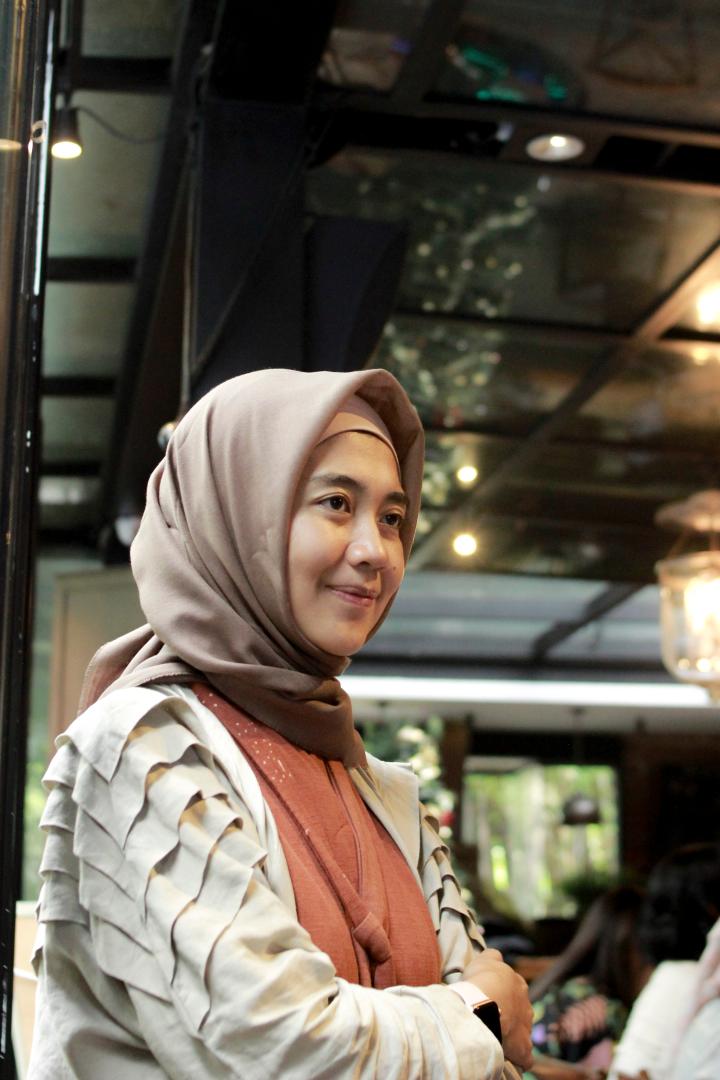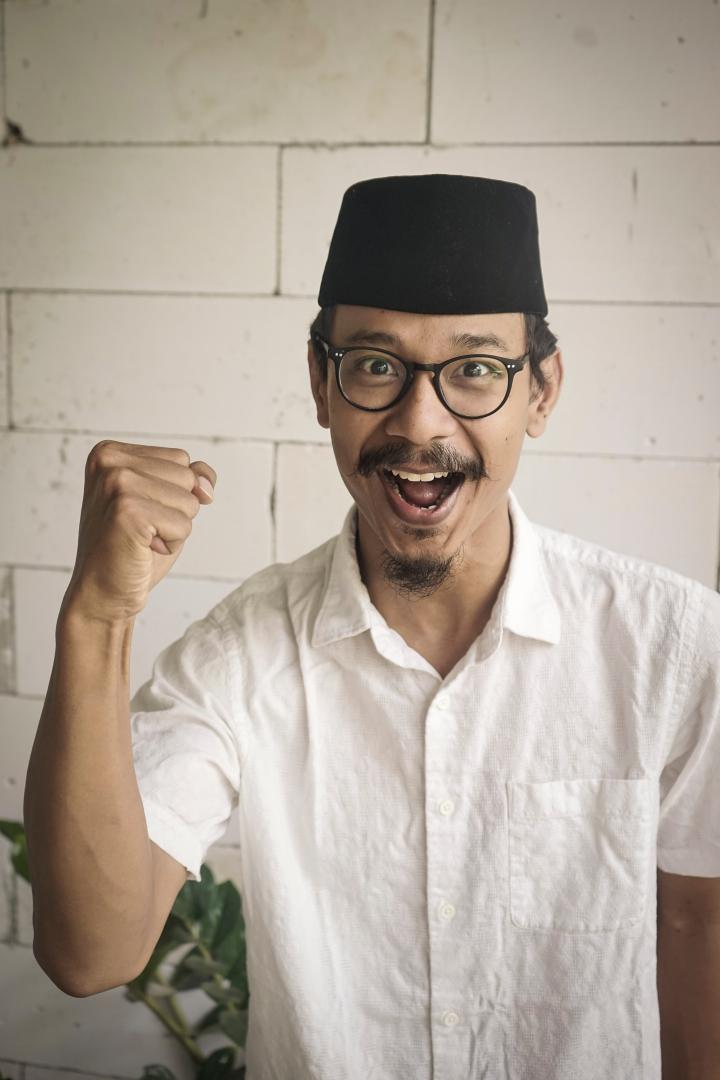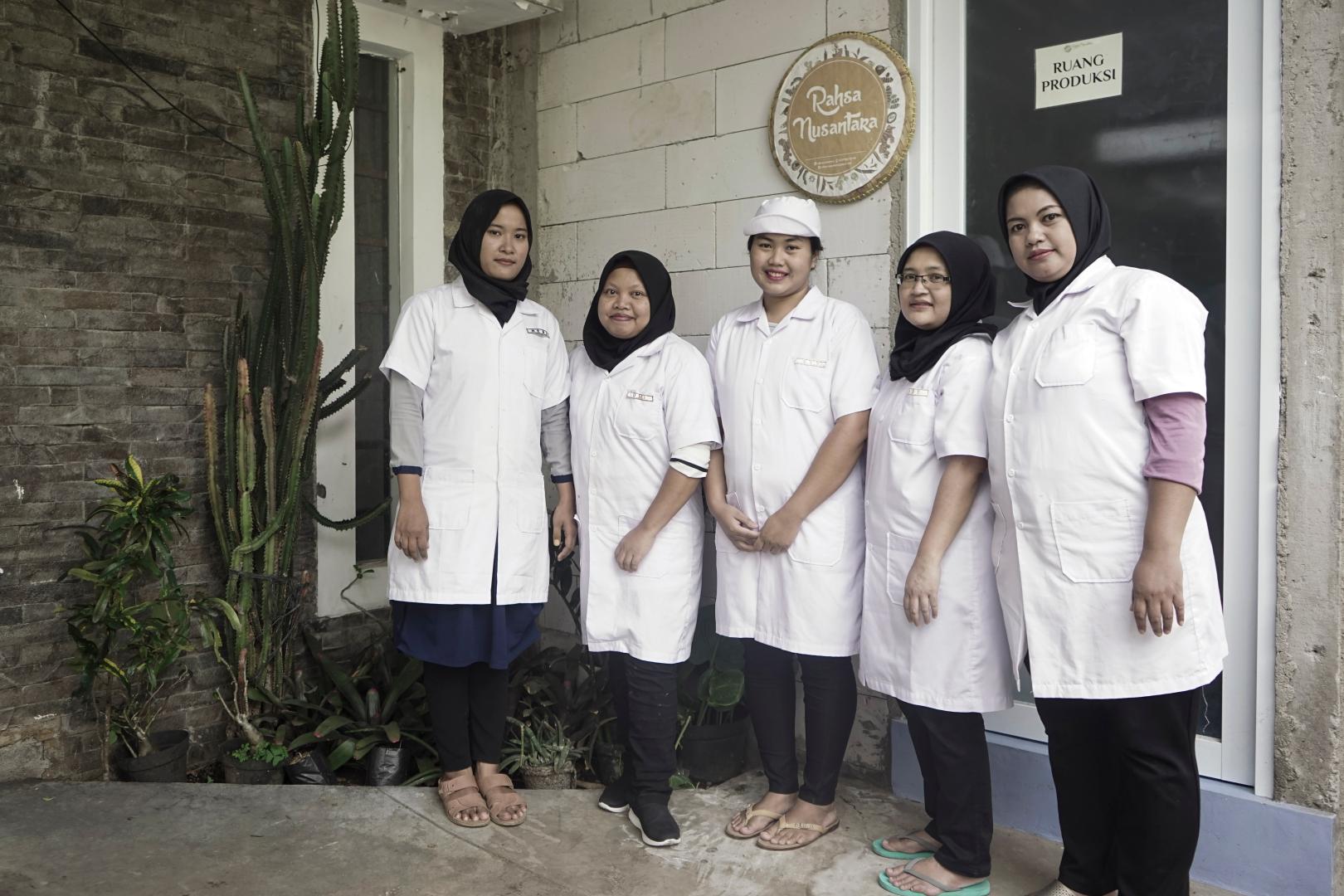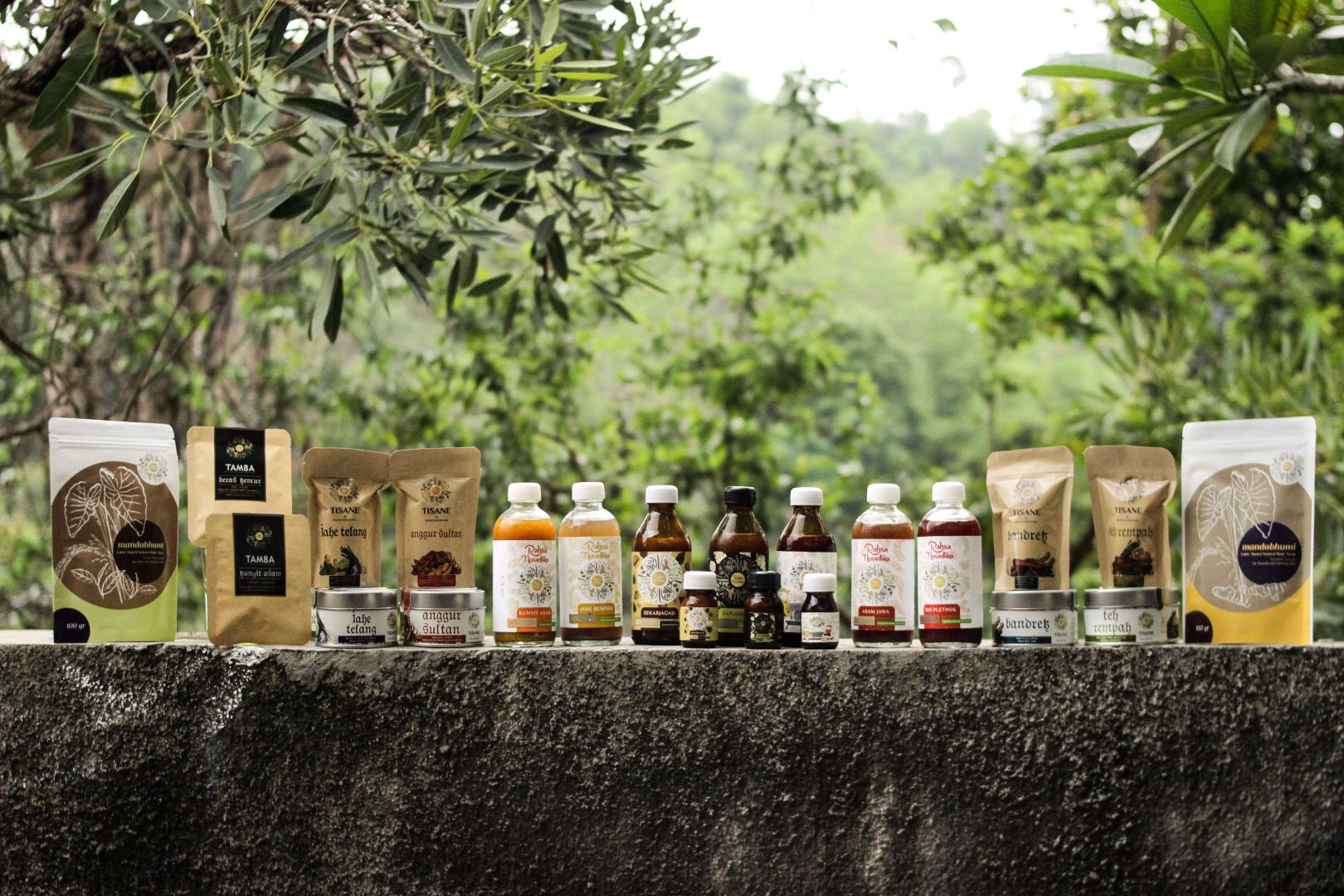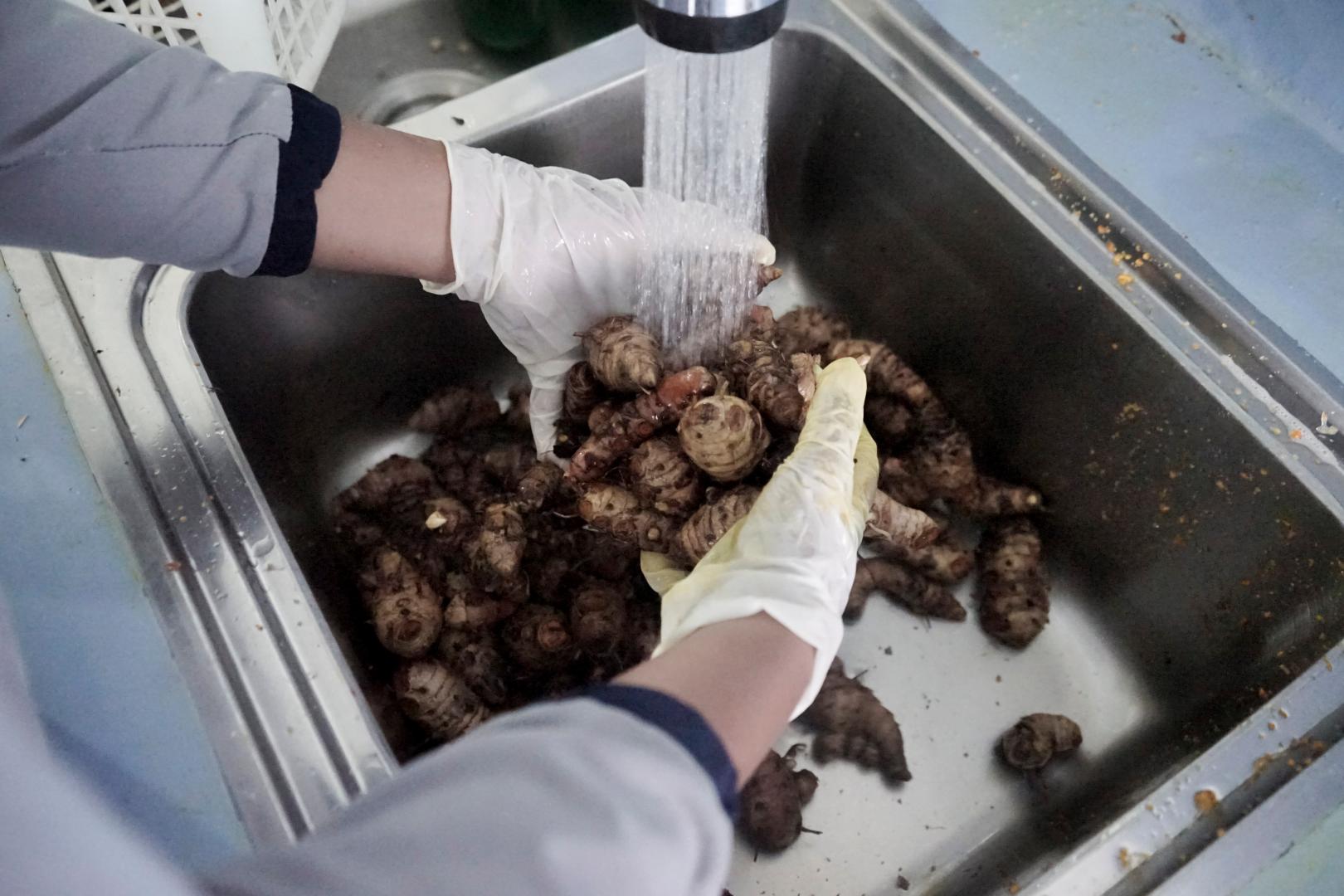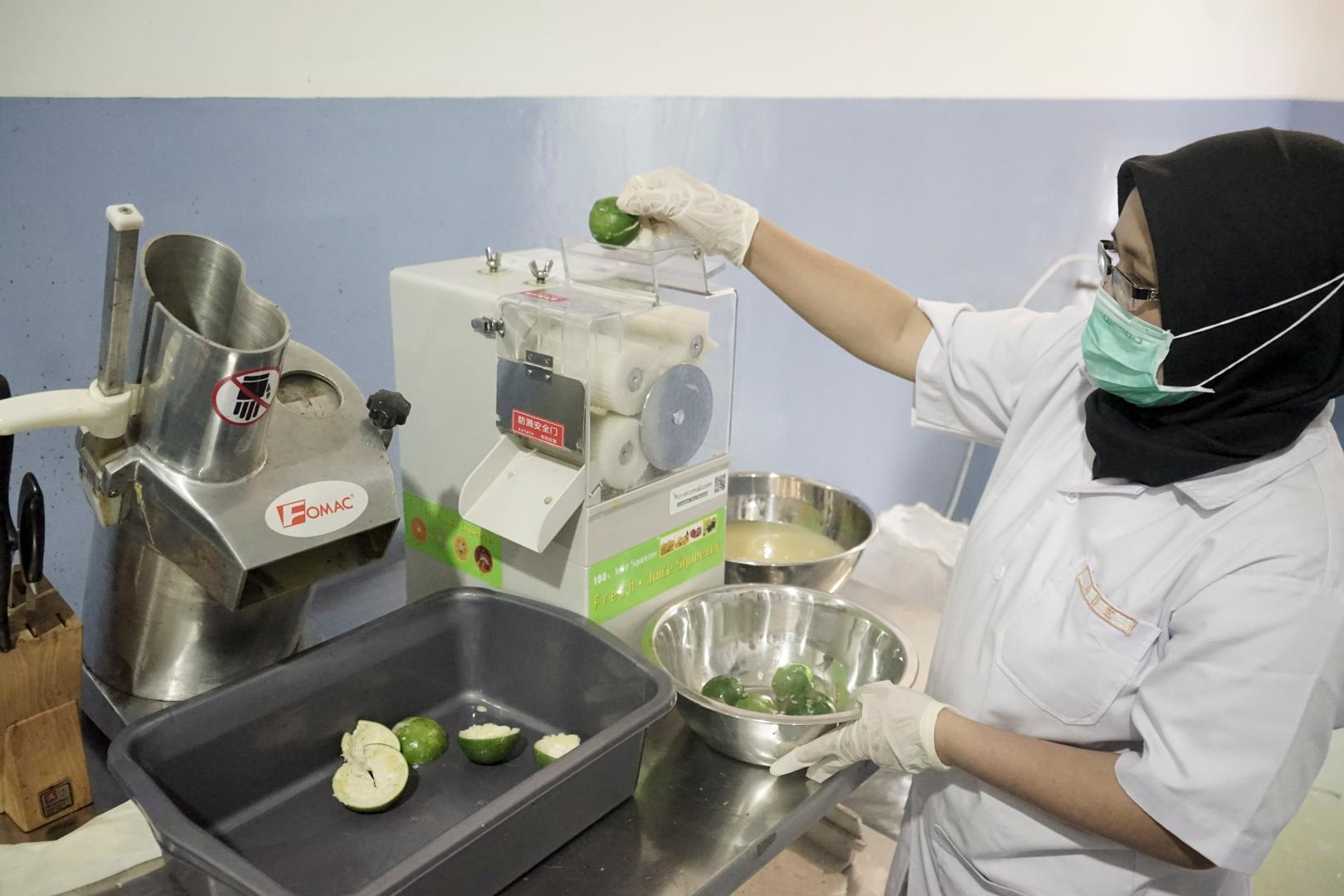Ayu Budianto, a mother of three and a recipient of the Investing Women Australia Award grant, knows what it’s like to face rejection. Before starting her business, Rahsa Nusantara, she never considered that being a mother and an entrepreneur would be so challenging.
Please share your story and what prompted you to start your business Rahsa Nusantara?
Rahsa Nusantara was sparked by a desire to preserve Jamu culture, an age-old, wisdom-filled Indonesian herbal medicine tradition that has now been abandoned by the younger generation.
Myself and my husband started the business in 2016. We were still experimenting as I wanted to focus on conscious living and empowering women, while my husband was more concerned with preserving the Jamu culture and local wisdom.
Today, we focus on a few key issues, such as natural, local ingredients, environmental awareness, and female empowerment through our business.
We collaborate directly with local farmers and marginalized women in nearby urban areas to produce natural, ethical, herbal medicines for modern health. This collaboration allows us to sell our products at an affordable price, while helping those in our supply chain to become financially independent.
Furthermore, we encourage responsible consumption habits by allowing customers to return our bottles and jars. We are also researching ways to turn our waste into fertilizer, animal feed and natural dyes.
As a female entrepreneur and mother of three children, what challenges do you face?
Although I’ve been in business since 2016, I really started to focus on it in 2017. I received a grant from the Investing Women Australia Awards at that time, which was incredibly helpful in getting started.
The biggest challenge I now face is juggling business and motherhood. I was once rejected by Indonesian investors when I tried to bring my baby into the conference room. However, when I pitched my proposal to the Investing Women Australia Award team, I got a completely different response. They allowed me to bring my youngest child—just three months old and still breastfeeding—along with me to the pitch.
How have you helped others through your business?
Encouraging Indonesian women to strive for a career is not easy. Women here are still expected to take care of domestic affairs, so they don’t have the luxury of fulfilling their professional dreams. As of today, we have twenty people on our production team and fifteen in management, most of whom are women. We aim to help all of our team members become financially independent and aware of the value they provide. Tech literacy, however, is a key problem we face in recruiting more women.
How do you make use of technology to help your business grow?
Before Covid-19 arrived in Indonesia, I had already leveraged technology to increase sales. On average, 60% of our revenue comes from online marketplaces, such as Tokopedia and Shopee.
Since the pandemic, we launched rahsa.id, which is a platform that allows us to be more data-driven and helps us forecast demand more accurately.
Although we use technology, we believe it is essential to maintain a human touch through our interactions with our customers and employees.
How can others make the best of the Covid-19 pandemic?
I think digital adoption is crucial. We’ve accepted that the pandemic has totally changed how our business is run, from the sales strategy to production. It has forced us to focus more on online sales, as we need to make up for offline losses.
In terms of production, we have implemented shift work so that our production and distribution teams can continue to meet the demand.
There are some silver linings in this pandemic. Many companies have laid off employees, so we can recruit great talent at a more affordable price and help local people get back on their feet.
What kind of support are you seeking right now to grow your business?
In this era, especially with the ongoing pandemic, it’s no longer business as usual. We need to face the challenges that change presents by developing more innovative solutions and shifting our mindset. Going digital will not only help us to sell products online, but it will also change the way we communicate and how we operate the business.
Currently, I am tapping into the support offered by the Investing Women Australia Award, and I also have a few business mentors who provide support and advice. Prior to the pandemic, we received a short course scholarship from Wharton School to learn more about business processes.
We are constantly seeking support opportunities because it will help us shift from a conventional business to an adaptive business. It will give us the knowledge and expertise we need to scale Rahsa Nusantara to a point where it will benefit society.
This interview is part of a series on women-owned SMEs (WSMEs) in four Southeast Asian countries, focused on how digitalisation presents new opportunities or challenges for women-owned businesses and how it could help them overcome their gender specific challenges.
Woomentum and KAS believe that empowered women in business who are equipped with digitalisation and innovation capabilities are able to build more sustainable and profitable businesses, empower other women and communities, and stimulate greater social and digital economic growth.



